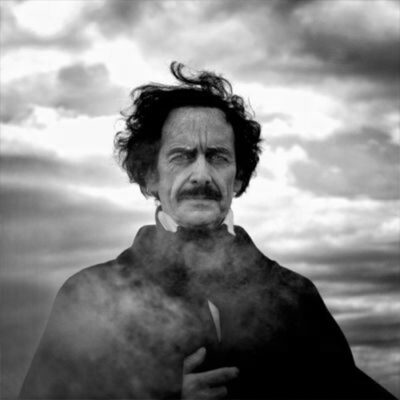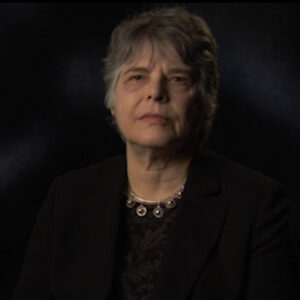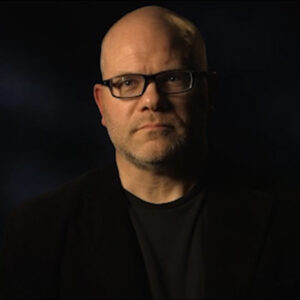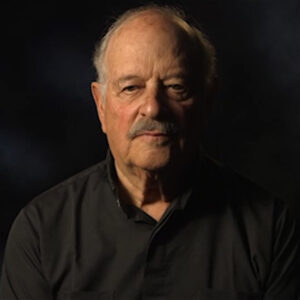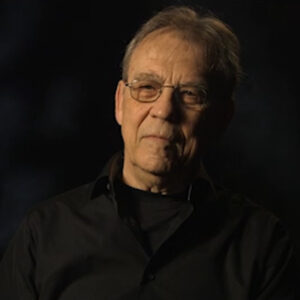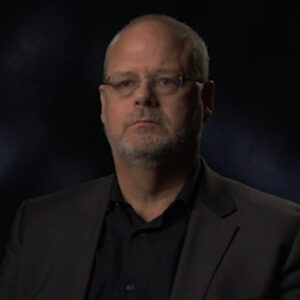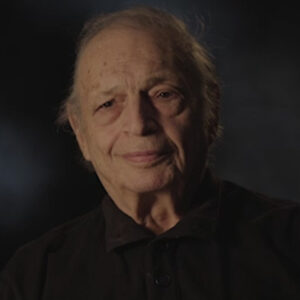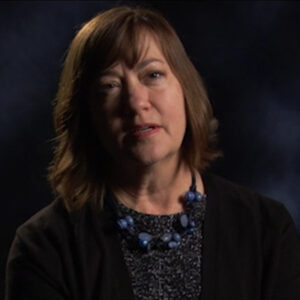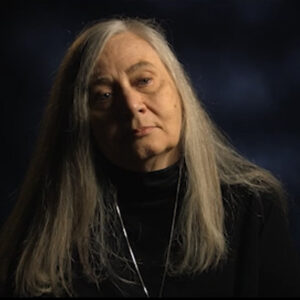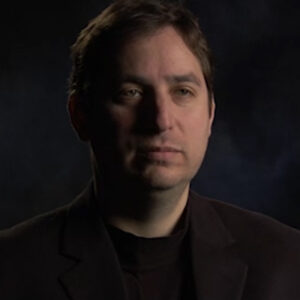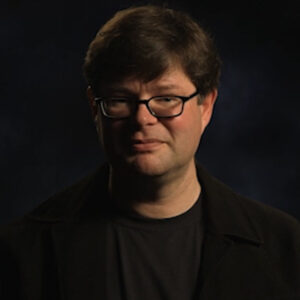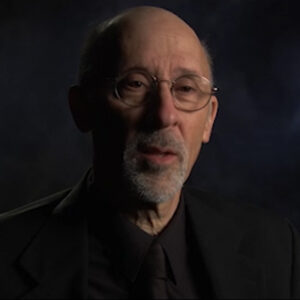Speaker OK, well, let’s start with this whole loss and mourning, so what do you think the impact was on Young had that child, Edgar, the adolescent Edgar, of having lost his mother before the age of both his parents, before the age of three, or whose mother died just before his third birthday?
Speaker And it had to be it had to be devastating for him. Obviously, his father had already abandoned the family and most certainly must have felt just unmoored in the world growing up. And so he’s fortunate in a way, because he he ends up not adopted, but he ends up taken in fostered by the Allen family. So he grew up with a family and with some creature comforts. But I think that John Allen particularly never let Edgar forget that he was not his real son, that he was that he was a foster son. And so, you know, one one effect of his father’s abandonment, his mother’s death, is that he grows up feeling like he’s both in a family, but not really in a family. In addition to that, I think just his grieving process was probably protracted, you know, perhaps throughout the rest of his life, particularly since he also had to live through the loss of other women who were very important to him. So by the time his foster mother, Frances Allen, dies in 1829, I think Poe is probably doubly grieved and and devastated by that loss because he had, you know, in some way he had already experienced it.
Speaker He also had lost a woman who he had become infatuated with. The mother of a friend of his changed the standard. He said that he wrote the poem to Helen thinking of her, and she became a kind of mother figure to him, and she died when she was a teenager.
Speaker So here’s Poe as a teenager going to Shockoe Cemetery, visiting the grave of Helen Stanard. Coincidentally, this is the same cemetery where his foster mother, Frances Allen, would be interred just a few yards away from Helen Stanard some years later. And although poet would not live to see it, his childhood sweetheart, Myra Royster Shelton, would also be buried in the same cemetery. So imagining Poe wandering Shockoe cemetery or going to visit the grave of Helen Standard seems really evocative.
Speaker It’s like Poe kind of communing with with these these lost spirits and these people who meant so much in.
Speaker And he obviously was taking it on board as opposed to or even I mean, I guess he was a budding politician from a very young age. So how how how do you see that working its way into his poetic voice?
Speaker Well, Poe knows that that grief is a fit subject for poetry, even before he writes that in the philosophy of composition. And so I think it’s a little bit hard to untangle the extent to which Poe is working with conventions of romantic lyric poetry and the extent to which, on the other hand, he’s channeling his own emotions and his own his own grief.
Speaker But in some combination that’s clearly going on in in poems that deal with beauty and and loss and that depict men not unlike Poe, who are torn apart by the loss of someone that they love.
Speaker And of course, it comes sort of to full fruition with with the Raven, which is in some ways a poem that draws on the poetic conventions of the time since Poe later claimed that he wrote it in a very calculated way. There’s some truth to that. But there’s also there’s also a human heart beating in that poem. And, you know, that is not entirely putting it together like a jigsaw puzzle, that there’s something in his own past and in his own his own life that is breathing life into that poem.
Speaker I’m going back to Bill first when he first comes to Baltimore after getting thrown out of West Point and he’s a struggling writer, I think that’s when he writes a letter saying, I am not yet 20, but will be a poet if or should be a poet or something. The exact quote. But can you describe how difficult it would have been for him then to try to aspire to be a writer, to make a living as a writer and then getting his first break selling the winning the prize of manuscript found in a bottle?
Speaker Well, when Poe when pollens in Baltimore.
Speaker Sorry, let me start over. So we’re thinking about like 18. Yeah, 18, 29. Before he publishes al-Assaf.
Speaker Yeah, before Allora. After Tamburlaine. But before I left and he just moved in with Muddy and write this and his brother there for a bit and then dies and just trying to get a sense of what that you know, he had no hope of being a writer, he had no money, and yet he was determined to do it.
Speaker Well, at some point in his teens, probably his late teens, Poe decided that he was he was a poet. And the fact that he would publish Tamburlaine the first thing he does when he runs away from home, maybe that’s not quite the right way to say it.
Speaker But the first thing he does when he leaves the Allen household and takes off for Boston is to publish a book of poems.
Speaker And it’s as if he is declaring his independence and he’s saying, this is now what I am.
Speaker I’m a poet and I’m a soldier. And so, of course, you know, that opens up another chapter of his life as well.
Speaker But in between his time in the Army and his time at West Point, he finds himself in Baltimore and is still very much determined to be a poet and manages to publish his second collection of poems, al-Assaf, Tamerlane and other poems. So you can see Poe even then at the age of about 20, thinking that this is what he has to do. And it’ll be a little while before he’s dispelled of that notion that he can simply be a poet. And I think that happens the next go around in Baltimore after he leaves, West Point was court martialed and 1832 33 poems in Baltimore and with a little bit of advice from John Pendleton, Kennedy and just sort of reading the market, he comes to understand that there’s this other kind of writing that he might be good at and that might sell a little more readily. So he begins writing stories and and from then on, after he’s published those first three books of poems, fiction writing and of course, editing and reviewing more or less take over for a while. The turning point is probably his winning the the prize in 1833 from the Baltimore Saturday Visiter or Post submits a poem and a story to the prize competition learns later from a member of the committee that they thought he had the best poem and the best story, but only wanted to give him one prize or the other. So they give him the more valuable prize for the best story, of course, is incensed that they didn’t just go ahead and give him both prizes. But he realized. But that might have been a moment when he realized, OK, that the prize was twice as much for the story as it was for the poem. Maybe this is the direction I ought to go. And so the mid eighteen thirties, he really starts to write stories that we would recognize as post stories, really I think begins to find his voice, begins to learn how to use the Gothic conventions to do something a little more complex and to write the kinds of stories that continue to intrigue people today.
Speaker It’s great. Thank you. That’s very nice on there.
Speaker When he was a Southern literary messenger in the debate, he got into with his boss, Thomas White, about Veronique’s. And Thomas White says it’s grotesque. I don’t want you to do this. And what what is Poe? I guess what I’m looking for to see if you can explain upholster are finding he’s realizing the formula for a successful story. And if you could maybe use that little debate with Thomas White as an example of how he’s putting his finger on what will sell.
Speaker Well, Thomas White was not. A literary man, and he was a careful, careful businessman in the business of publishing a magazine, so a story like Berniece, that’s the sort of thing that would make Thomas quite nervous. It’s it’s an over-the-top, violent, disturbing story. And so when White question Poe about it or suggested that this was going too far, Poe basically defended it by saying, I mean, I’m paraphrasing, but if you want people to buy your magazine, you’ve got to write and publish things that will get attention. And Poe was always willing to do that and was never apologetic for it. It was one of the things that began to drive a wedge between between him and white. But Poe was certainly on to something. And even though his stories might not have been the most grotesque or the most violent that were being published in the 18 30s and 40s, and they weren’t, he he knew that, you know, sensational fiction would always have an audience and that if he could write and that kind of attention getting way, but also make these stories thicker in terms of psychological complications and the motivations for some of these crazy MCB things that happened, that he could perhaps reach multiple audiences. I’m not sure he did that so much in his lifetime, but he certainly achieved it after his death.
Speaker What was he doing with these stories that was new and different, or how is she taking established conventions and giving them a twist or a turn? Can I get some water? Yeah. Yeah. And, you know, honestly, if you want to get off, feel free to say that, you know, let’s go to the next one, because I’ve got a million questions, you know, but I guess, you know, what I’m interested in is that. Yeah. So he was so Gothic fiction had existed for a short years at that point or something, right.
Speaker That he did something different. And how is he doing it? And what what was clever about it was he being so clever?
Speaker Well, Poe’s writing fiction that relied on these outworn Gothic conventions and he was well aware of that to the point where some critics today wonder to what extent certain stories like Logia, for instance, are satires of the very things that that that Poe’s employing, people coming back to life, people being buried alive. And it’s not always clear whether Poe is being completely serious and wants us to take the scenario seriously or if he’s sort of poking fun at devices that writers have been using since the mid to late 18th century. He’s doing I think his contemporaries might not have recognized these stories as markedly different from other other McJob tales or other Gothic stories of the time. He wasn’t so much known for having written Lichee or having written the fall of the House of Usher in the 18th in the late 18th, 30s and 40s. What he was doing that was different, I think was. Humanizing these monsters and creating scenarios that are unbelievable and clearly designed to shock and maybe offend people, but then also, I think encouraging, maybe even forcing readers to ask questions about, well, why why would why would someone kill an old man that he lives with and that he loves? It seems to be a motiveless crime, but the story won’t let you leave it there. The story makes you ask what’s really going on here? Why would an animal lover hang a cat? It’s it’s one thing to just sort of present that kind of repulsive scenario, but I think what Paul was doing was creating characters that were complex enough and somehow human enough to implicate the reader in what they were doing and to make us ask not just, oh, that’s not just say, hey, that’s so gross or that’s that’s such a terrible thing to do. But to to start to wonder, is there something in all of us that that maybe makes us do things that are going to and sorry, I’m going to have to start that over.
Speaker All right. Could you would it make sense or. I’d love to hear his quote about when he was accused of plagiarism, the Gothic fiction or whatever it that the terrors not of Germany, the terrors of the soul. I don’t know if that does that in the ballpark. Sure. OK, because I just love that quote and it’s really been able to explain it very well.
Speaker I was actually using that in class just about a week ago, so that should be fresh in my mind. OK, so in in 1840, when Pope publishes the collection of tales of the grotesque and Arabesque, he includes a preface that explains what the famous line that the terror in his stories is not of Germany, but of the soul. And I think what he’s trying to say is that he’s not just following a popular set of conventions, that he’s not just imitating other writers and particularly German Gothic writers or dark romanticists, but he is writing about a terror that is human and real and is not just it’s not just a literary thing. It’s not just something that he picked up from ETR Hoffman. And he’s right. And I think that’s why that’s why people keep coming back to these stories, is that he finds he does find the soul in characters who do inexplicable things and who do sometimes horrible things.
Speaker And what about the narrative power that he finds and in juxtaposing opposites, things that, you know, in our sort of rational, everyday world we would never put together.
Speaker So life and death and the idea of someone being dead, but they’re still alive or you have a list here of other ones, you know, the humor next to the horror and the happiness and the incredible unhappiness that he would he would write about what was that new and different or was that something he was able to use more successfully than other writers?
Speaker I think the part of that I would most like to talk about is the dead and alive, that because of our title as Edgar Allan Poe buried alive. Oh, yeah. Well, from his first real successful story manuscript found in a bottle on, Poe is really interested in the line between life and death, between consciousness and something else, a sort of post-mortem consciousness. And that might be something that ties in with the grief that he felt throughout his life, the fact that he was orphaned and that he experienced the death of the person who was closest to him at a very early age. You can imagine him asking these questions about, well, what happens when you die? What does it mean to die? And in some way, that basic question informs most of Poe’s most famous stories. The manuscript found in a bottle, for instance, involves crossing over, leaving one ship where people are alive and landing on another one where everyone’s a ghost and writing about it so that you send this message from beyond to people who are still alive about what it’s like to be dead. And then, of course, and the story’s named Four Women Who Die and then in some way come back, Wijaya and Maurella and Elanora. And then there’s Madeleine Usher. So this idea of whether it’s being mistakenly buried alive or being kept alive in some way through mesmerism, as in the facts of the case of Mr Valdimir Poe is constantly thinking of. Out those possibilities and thinking about the idea of communicating with the living from from beyond that, that line, which is not a very strict line in Poe’s stories, it’s a line that the characters cross and recross.
Speaker And why is that so powerful?
Speaker I think that idea of post-mortem consciousness is powerful because most people want to know, and it’s it almost sounds silly to talk about it because it’s such a basic concern and fear that we all go through life with what does it mean to die? What what would it mean to to not exist? How can I even fathom that? And you might think, OK, that’s kind of a dead end. You know, you have to die to find out. So what’s the point in thinking about it? But we still think about it. And Poe enacts it in so many different ways, in a range of his fiction and his poetry, the whole idea of the relationship between the living and the dead, the idea that if someone dies and you care about them so much that you think about them every day, you faithfully visit their grave. You do all of you do all of these things to in some way keep them alive. Does that really keep them alive? Do they know you’re thinking about them? Do your parents know when you’ve been to visit their grave? We know, I guess, that they don’t. And yet I think a lot of people, when they visit cemeteries, feel like in some way the people they’re going to visit, the memories they’re keeping alive, those people can feel it or somehow know it. So I think that those kinds of sensations, those kinds of ideas were just central to Poe. And he wrote about them in ways that that that other people can can understand and and that are often troubling and often macabre. But somehow he got it right a lot of the time.
Speaker It’s great. Thank you once again. Yeah. This is. Got you. Doing OK. Yeah. OK, but let me ask you about Powell and race and Powell and his and attitudes toward slavery in the early but growing abolitionist movement. There was something that made me think of this.
Speaker Now, I can’t remember what it is, but I’ll just ask if I can write that book.
Speaker Well, Po Po grew up in a slaveholding society, obviously growing up in Richmond. I think what a lot of people don’t realize is that before John Allen inherited a fortune from his uncle and actually became a large scale slaveholder for a time, the family lived on Tobacco Alley in Richmond, right in the middle of the the center of slave based commerce. Slaves were imported right down the street from where PO was living as as a teenager. They were they were they were bought and sold. They were imprisoned there. It’s not as if Po just grew up in the South and there was slavery in the South Post growing up sort of in one of the central locations for the slave trade and would have seen inevitably would have seen the the human trafficking on an almost daily basis. So it was up close and personal. And then, of course, his. His foster father became the the the owner of hundreds of slaves when he inherited William Gault’s big portion of winglets fortune. So Po Po sort of lived and breathed slavery throughout the part of his life that he lived in Richmond in his writing. It’s often hard to tell what Poe’s position in regard to race and slavery is, because so much of what he does is conventional and drawing on certainly racist stereotypes. I mean, there’s no there’s no getting around that. But I don’t say this to excuse power, let him off the hook. But he was doing what just about every white writer would do when they wrote a black character into a story.
Speaker So a character like Jupiter in the goldbug, you know, Scarlett have this radiator’s race and this man. So he was doing what other writers did in terms of stereotypes.
Speaker But, well, it’s it’s difficult to talk about PO and race in some ways because you have to I think you have to say right up front, PO is racist. Was he virulently racist? Probably not. I mean, he the a phrase that has been tossed around among post scholars since Terry Whalen’s book, Edgar Allan Poe in the Masses is average racism, which in some ways is the sort of banal racism that a writer of Poe’s day, if he wanted to edit and edit magazines and sell stories, would probably adopt. So you have characters like Jupiter in the Goldbug who is straight off the minstrel show stage. And it’s offensive. It’s also mainstream popular culture of the 40s. So you can’t really let people off the hook for creating characters like Jupiter or Pompey and how to write a Blackwood article. But at the same time, he doesn’t seem to be a writer who wanted to go out of his way to create these kinds of stereotypes just for the sake of creating them. Probably the most difficult text in that regard is in the narrative of Arthur Gordon Ken, and that’s where I think it does go out of his way to create a kind of racial allegory where he has where he has a white crew of the Jangi is an island where the inhabitants are all black, even to the point of having black teeth. And essentially a race war ensues in which all of the whites accept him. And Dirk Peters, who previously had been a half breed Indian, are killed.
Speaker So this even this is sort of difficult to interpret since on one hand it seems to implicate the black inhabitants of Salal as savage and bloodthirsty.
Speaker But it also suggests that they were smart and they knew why these colonial traitors or imperialists were coming to their island and they acted in self-defense and lulled them into a false sense of security and then got rid of them. So the story can be read as a kind of racist allegory or as an allegory. That is a cautionary tale against the imperialist mentality that the crew of the JEAN-GUY represents. That’s probably the thorniest text from PO on on issues of race and slavery.
Speaker Good luck. Thank you. Not only did I mean flying, but we can bury stuff in there that definitely will. Thank you. You want to try the pole and when and where? I mean, I’m thinking about him when he was in New York and he was a pretty influential literary critic and involved in the New York literary scene.
Speaker Yeah, I can give it a try at might it might be a mess, but I’ll use it if it doesn’t work. Well, by the mid 40s, and particularly after the success of The Raven, who began to frequent literary salons in New York, at which most of the participants were women and most of most of them were poets, there was a kind of segregation of poetry at this time between male poets and female poets. That seems it seems kind of, you know, silly now. But women, poets were known as poets is for the most part and and implied a completely different set of materials and even a different poetic style. One thing that’s interesting about PO is that his poetry often reads a lot like the poetry of women, poets of his time, and he was willing to take some of those women poets quite seriously. I think Pope probably saw through this dividing line between male and female poets, and he was certainly more willing or more eager to attack a male poet in print than he was a woman poet. That might have been, you know, that might have been some kind of gallantry or I’m not sure.
Speaker But but Poe certainly admired, for instance, Elizabeth Barrett, from whom he got some of the basic ideas, some of the basic rhythm and rhyme scheme for the Raven. He clearly admired her greatly and he admired other women, poets as well.
Speaker That was good. But that was actually a helpful thing about TV documentaries, as we know, very deep. And, you know, we can’t. So now that that was actually very helpful and we question about the revenge stories and so and maybe if you could just mention the Cask of Amontillado and Froggies.
Speaker So I guess it’s relatively easy to read. I mean, not bad, but compared to a lot of other 19th century writers. Yeah, yeah.
Speaker I mean, students definitely come they come into a class. Where are you going to do with a I think a much more cooperative attitude, just like, oh yeah. This is, this is what I this is what I took this course to do or have some fun. Speedy. Thank you.
Speaker Yeah. So the revenge stories, what was going on. Poe’s life. I was writing this dark stuff.
Speaker Well, after the success of The Raven, things went downhill pretty quickly for Poe. He he gained control of the Broadway Journal, which should have been the fulfillment of a lifelong dream. But he was kind of hitched to a wagon that was about to crash. And so with the demise of the Broadway Journal and Virginia’s worsening condition, Poe began to have a harder and harder time. And and really, he became a target for people who nursed resentments against him, people that that he had had conflicts with already in his career, prominently Rufus Griswold, but also Thomastown English, who satirized Poe in print and with whom Poe had a libel suit at one point. So Poe probably began to feel besieged around 1846, 1847, maybe a little paranoid. And yeah, if you could start with, Poe somehow probably began to feel the Semak probably began to feel besieged sometime around 1846. And that might have contributed to some stories that he wrote about revenge, particularly the Cask of Amontillado seems to seems to spring in some way from Poe’s fantasies of revenge with some of his literary rivals. Not in any simplistic way, but but certainly at a time when Poe was in some fairly bitter disputes with other writers and other editors, he happens to write this story about a guy who nurses a grudge for a long time. And then finally.
Speaker Gets to do what he’s always wanted to do, which is to literally wall the guy up, chained to a wall and watch him go from thinking this is all a joke to realizing that he’s about to be buried alive.
Speaker What’s interesting about the cast of Amontillado, though, is that it’s uncertain whether Montasser, who enacts this perfect revenge, can really rest easy about having achieved it. He has lived with it for 50 years, and the story is a deathbed confession at the end, even though he seems proud of having pulled it off and the cleverness and the reverse psychology that he’s used to get Fortunato to to fall for it and to be walled up, Montasser still seems to feel this twinge of identification with his victim and some just enough remorse to make you wonder as a reader whether in some cosmic way Fortunato got back at him after all. And I think Poe has that insight into the nature of revenge. It’s a cycle where nobody really is going to win. And that might seem a little moralistic, but it’s the way that the revenge stories tend to play out in some way because time do what do.
Speaker And right now, I think that was right after you stop that last line. Just so yeah, I don’t remember what our cycle of revenge where revenge is something where.
Speaker OK, so.
Speaker In those revenge stories, it turns out that it’s a cycle of revenge and it’s hard to say for sure when it’s all over, who wins?
Speaker Thank you. I think we’re I was convinced that the water bottles froze after. I’m just just wondering what the Griswold Oh bit. So we’ve gotten powdered, actually. Let me ask you this. The mystery of his death, the mystery of his last week, how does that play into the whole bigger Poe mythology, the image most people have of Poe?
Speaker One of the first things that you often hear about PO was that he died in a gutter, which of course isn’t true. He died in a hospital. But that idea of the great poet dying in a gutter or dying on the streets somehow adds to the romantic view that we have of Poe as a as a tortured artist and as an underappreciated artist. There’s also the mystery of how he spent the last week of his life and how he came to be in the condition that he was in when he was found in a tavern in Baltimore. And that has has added to the mystique as much as the notion of the poet who dies in a gutter. So the great mystery writer leaves this mystery at this crucial moment in his biography at the very end of his biography, so that readers of one of his stories, readers of his life, are going to wonder, well, what really happened there?
Speaker So we continue to to wonder and dig for clues and come up with theories as to how Poe died. But it seems somehow fitting that that whole last week remains remains a mystery.
Speaker And what should people know about power that they don’t know?
Speaker A couple of things that I think people should know about Poe that most people don’t want is that he was an extremely versatile writer. And one of the pleasures of talking about Poe teaching Poe is to sort of go from the image of Poe as a tortured Gothic writer who was spilling onto the page expression of his own inner demons to trying to understand him as somebody who wanted to be able to do a variety of things and could do a variety of of things well as a writer. So the fact that Poe wrote satires that he wrote, produced science fiction, that he wrote, of course, detective stories, in addition to the Gothic tales that he wrote an enormous amount of literary criticism and book reviews. And then, of course, the poetry. Poe was willing to try just about anything as a writer, and he did a number of the things that he tried really well. So I think there’s you know, there’s a misconception that pose a kind of one trick pony of Gothic horror, but that’s certainly not how he saw himself and that’s not how other people saw him at the time. The other one other thing that I think is a misconception about, or at least something one other thing that people don’t realize about Poe is that he was a really hard working editor and writer. He didn’t spend his days in seclusion, pouring out his heart on the page. He spent a lot of his days in an editorial office of a magazine. And when he was writing his fiction and his poetry, he was writing with a marketplace in mind. Poe had to write in order to survive. And even though he never made a good living from his writing, he always was trying to. He was he was always trying to write his way out of poverty. That is headed his way out of poverty. And so Poe worked really hard and was a really diligent writer. His alcohol problems notwithstanding for long periods of time and really for most of his career, he was plugging away at his craft.
Speaker Great, thanks. And one more and then I promise we’re done Griswold’s obituary. What what effect did it achieve in the short run? But how did it backfire in the end in terms of what Chris Ward was trying to do?
Speaker Griswold’s obituary had a sort of devastating effect to his reputation, not the reputation was was clean at the time of his death. People already suspected that he was that he was going insane or at least knew that he was was was troubled and erratic in his behavior. But Griswold really went public and in a very inappropriate time with exaggerations about posehn instability and about his dishonesty that were really damaging to his reputation in a couple of ways. It backfired or maybe worked because it’s possible that Poe wanted Griswold to be his literary executor. We’re not really sure whether that was his intention or not, but Poe might have known that whatever Griswold might say about him personally, he would make sure that Poe’s work stayed in print. And Griswold did do that not only by editing those works and in getting them out there, but by making him this infamous, strange, possibly insane character. So if you believe that there’s no such thing as bad publicity, then Poe couldn’t have chose better than to have Griswold write that damning obituary and to be his literary executor the other way that you might say it backfired. If Griswold’s intention was to discourage people from reading Poe was that people came to oppose defense. His friend and former employer, Nathaniel Parker Willis, his former employer, George Graham, wrote tributes to Poe to try to set the record straight. And in some ways the second half of the 19th century. This debate over Poe’s character, over what Poe was really like continues. And that keeps him in the public eye and keeps him in the public consciousness. And his work never goes out of print. So I’m not sure what Griswold was trying to do when he wrote that obituary. But I think the long term effect was to heighten interest in Poe and to keep her out there, keep Poe in print.

